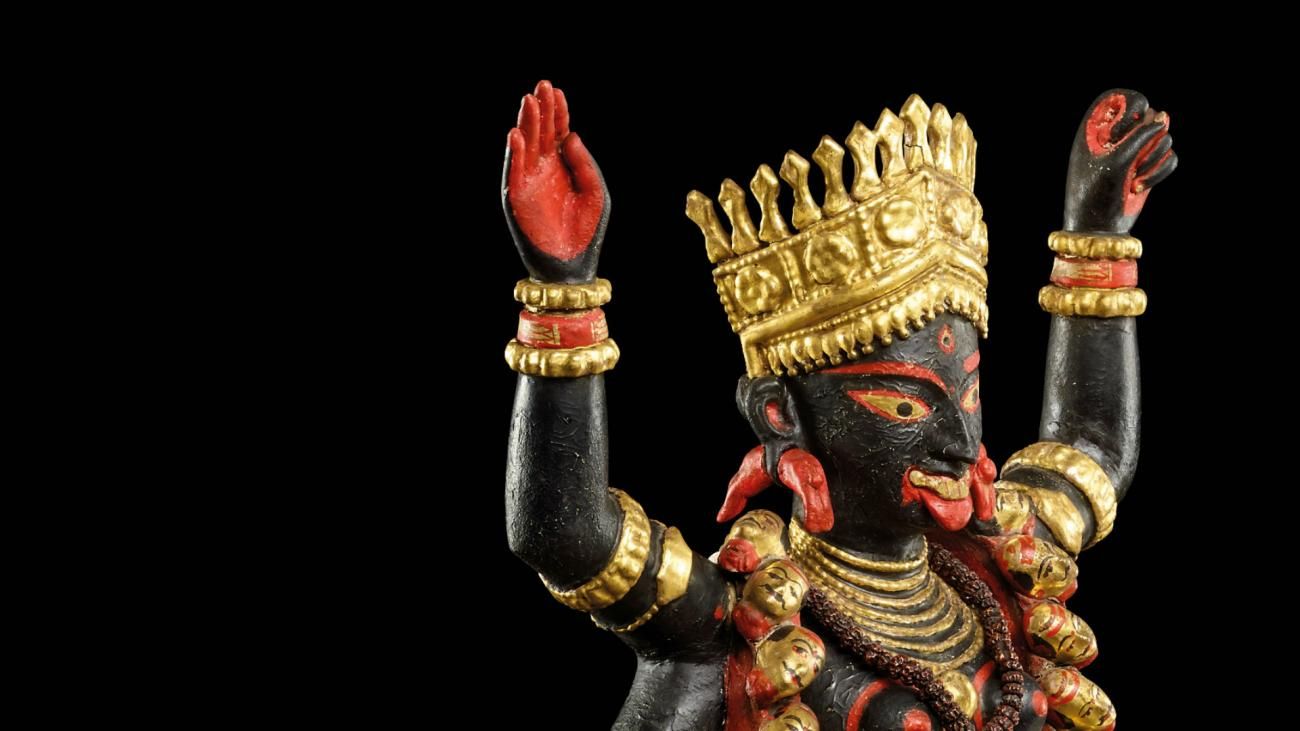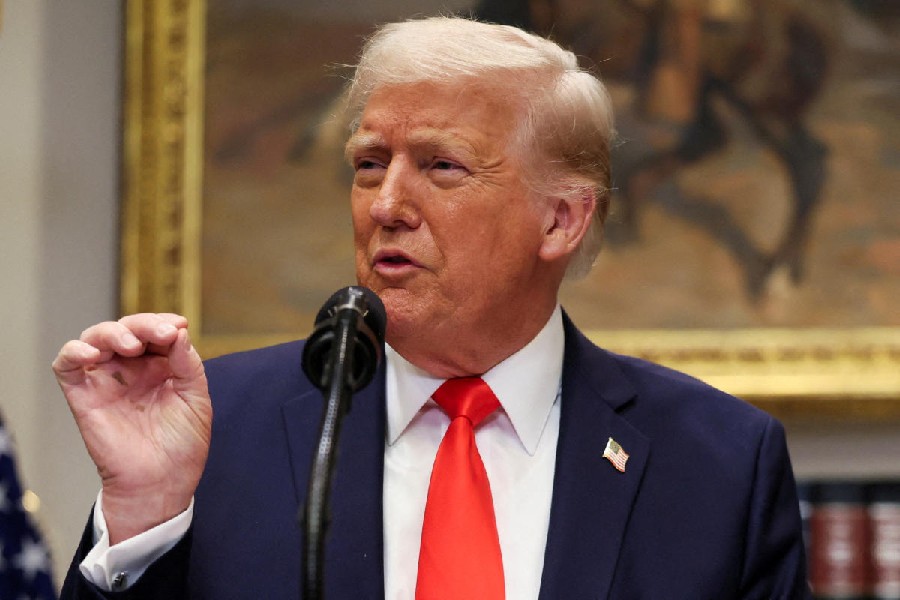Kali Puja pandals will be “no-entry zones” like the ones for Durga Puja this year but since they are more in number and smaller than Durga Puja pandals, only up to 5 metres from them will be part of the restricted area, the high court ruled on Thursday.
The court had ruled that 10 metres from big Durga Puja pandals and 5 metres from the smaller ones would be treated as no-entry zones.
The high court also banned processions during immersion of Kali idols and said the immersions “should be low-key affairs”.
The restrictions, imposed as a precaution against Covid-19, will also apply to Jagaddhatri and Kartick Puja pandals across the state.
The division bench of Justice Sanjib Banerjee and Justice Arijit Banerjee, which issued the order, said the no-entry zone would include “an area of five-metres beyond the pandals on all the open sides”.
“Except for dhakis, the five-metre zone has to be kept completely free at all times,” the court said.
Only 10 persons will be allowed in the covered area of a Kali, Jagaddhatri or Kartick Puja pandal “where the covered area excluding the dais is up to 150 square metres”.
The order said: “For pandals with a covered area between 150 square metres and 300 square metres excluding the dais, the number of persons at any point of time may be 15. For bigger pandals, in excess of 300 square metres in area excluding the dais, a maximum of 45 persons can be within the pandals at any given point of time.”
At temples, the police have to ensure “that Covid protocol is maintained”.
The court said: “The local administration and police will ensure that there is no overcrowding within the temple precincts or outside. This will apply particularly to the Dakshineshwar Kali temple, the Kalighat temple, the Tarapith temple, the Kalyaneswari temple in Rupnarayanpur and other Kali and Shakti and other temples all over the State, till the lockdown is completely lifted.”
The court asked the administration in the districts where the Kali pujas are held in a big way to ensure that its directions were conveyed to the organisers “well in advance”.
“The local administration in Hooghly, particularly Chandernagore, has to ensure that the directions are made known to the Jagaddhatri Puja organisers well in advance so that appropriate steps can be taken. Similarly, in those pockets where Kartick Puja is held in a big way, the local administration should take appropriate steps well in advance. In Uttarpara, Barasat and other areas where Kali Puja is held in a big way, the local police and administration should make the citizens and the organisers of public pujas aware of these directions immediately,” the order read.
The state government had earlier said that the pandals had to be open on all four sides.
The bench added that sanitisers should be available at the pandals, wearing masks would be mandatory and distancing norms had to be maintained always.
“Immersions should be low-key affairs and processions for such purpose will not be permitted,” the bench ordered. It has prohibited the “use of bands and lights” during immersion. The police will have the discretion “to provide for staggered timings so that the immersion ghats are not overcrowded”.
The bench passed the order following a PIL by Ajay Kumar De seeking a court order on maintaining pandemic protocol during the festivals.
The bench said the restrictions imposed for Durga Puja seemed to have had the desired effect. “Indeed, the usual crowding at puja pandals during Durga Puja was, more or less, absent. Whether as a result of the measures taken or otherwise, there does not appear to have been a spike in Covid cases, till at least a week after Durga Puja. It is thus hoped that if similar directions are issued for the conduct of Kali Puja next week, it may… (be) to the benefit of the citizens of the state,” the order said.
The kind of processions that may be allowed for Chhath Puja will come up in court on November 10. The court added: “Since Christmas is some distance away, no directions in such regard are issued at the moment.”











